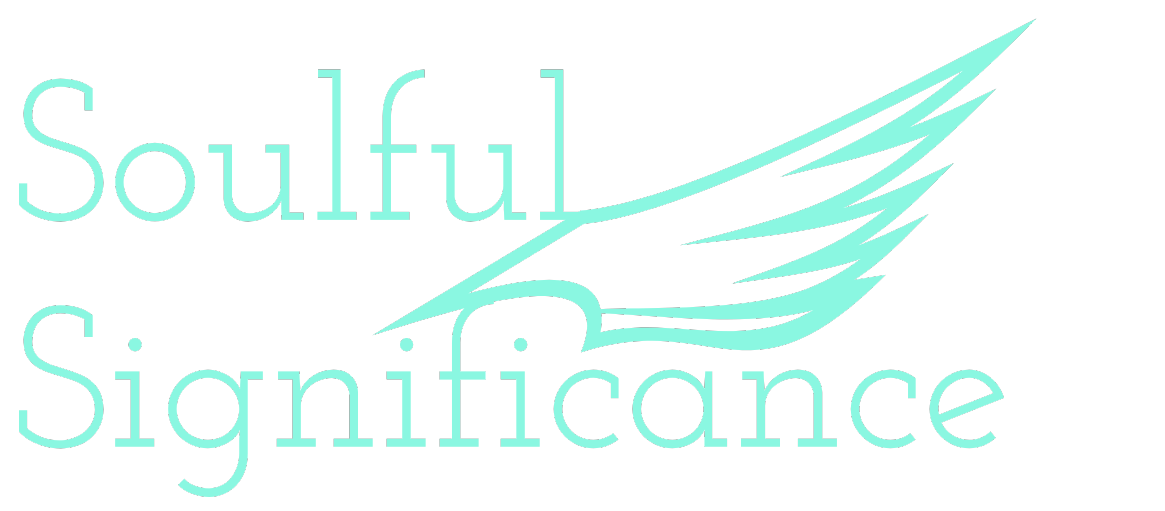16 Spiritual Meanings of There’s a Man Going Round Taking Names
As we ponder the enigmatic phrase "there's a man going round taking names," we can't help but wonder what lies beyond its seemingly simple words. For us, it's a haunting reminder that our actions have far-reaching consequences, and that someone – or something – is keeping tabs on our every move. But what does this really mean for our spiritual journeys? Does it imply a cosmic reckoning, or a chance for personal redemption? As we explore the 16 spiritual meanings behind this cryptic phrase, we'll uncover the profound implications it holds for our lives, and the unsettling truth that our choices have a way of catching up with us.
Key Takeaways
- The phrase "There's a Man Going Round Taking Names" symbolizes the concept of a Divine Auditor, recording human actions for accountability and moral judgment.
- This metaphor represents the idea that every thought, intention, and deed is being chronicles, with consequences that extend beyond this lifetime.
- The "Man" embodies the notion of karma, where actions have consequences that restore balance to the universe, rather than punish individuals.
- Self-reflection and redemption are essential, as they allow individuals to acknowledge mistakes, learn from them, and grow spiritually.
- This spiritual concept serves as a reminder to live intentionally, cultivating empathy, compassion, and kindness, to align with one's highest self.
Accountability in the Afterlife
Many of us have wondered what lies beyond this mortal coil, and whether our actions will have consequences in the afterlife.
We've asked ourselves if our soul will face a reckoning, where every choice and deed is laid bare for examination. The concept of a Divine Auditor, meticulously reviewing our life's ledger, can be a formidable thought.
Yet, it's this very notion that can inspire us to live more intentionally, to aim for kindness, compassion, and empathy.
As we navigate life's complexities, we're reminded that our actions have consequences, not just in this world but potentially in the next.
This understanding can foster a sense of accountability, encouraging us to take ownership of our decisions and their impact on others.
Rather than fearing the Divine Auditor, we can view this accountability as an opportunity for growth, self-reflection, and spiritual evolution.
Morality's Unblinking Gaze
Beyond the reaches of this earthly domain, we sense an unwavering presence, one that beholds our every move, thought, and intention.
This unblinking gaze is morality's constant companion, guiding us towards a path of righteousness. It's the voice within that whispers what's right and wrong, urging us to align our actions with our moral compass.
As we navigate life's complexities, this inner voice reminds us of the importance of upholding ethical standards, even when no one is watching.
We're reminded that our choices have consequences, not just in the afterlife, but in the present moment.
Every decision we make, every action we take, either strengthens or weakens our character. Morality's gaze isn't about judgment, but about accountability.
It's about being true to ourselves and living a life that resonates with our values. As we endeavor to become better versions of ourselves, let's embrace this unwavering presence, allowing it to guide us towards a path of integrity, compassion, and wisdom.
The Weight of Personal Sins
Embracing the weight of personal sins is a formidable task, one that requires us to confront the darkest corners of our own hearts.
As we reflect on our moral ledger, we're forced to acknowledge the mistakes of our past, the choices that have led us astray, and the harm we've caused to ourselves and others.
The sin burden we carry can be crushing, weighing us down with guilt, shame, and regret.
But it's in this darkness that we're given the opportunity to confront our true selves, to acknowledge our flaws, and to seek redemption.
As we take responsibility for our actions, we begin to understand that our sins aren't just personal failures, but also opportunities for growth and transformation.
We can choose to let our mistakes define us, or we can use them as stepping stones towards spiritual growth.
Judgment Day Looms Near
As we begin to lift the burden of our personal sins, we're met with an unsettling realization: our actions have consequences that echo beyond our individual lives.
We start to understand that our choices don't exist in a vacuum, but rather contribute to the grand tapestry of existence. This awareness sparks a sense of responsibility, and we realize that Judgment Day looms near.
The man taking names isn't just a figure of folklore, but a symbol of the cosmic balance that awaits us. Our deeds, both good and bad, will be accounted for, and eternal penalties will be exacted if we fail to make amends.
This knowledge can be intimidating, but it's also an opportunity for growth and redemption. We must acknowledge the gravity of our actions and aim to live in harmony with the universe.
Consequences of Moral Lapses
When we succumb to moral lapses, the repercussions reverberate throughout our lives, threatening to upend the delicate balance we've worked so hard to maintain.
We're left grappling with the weight of our actions, and the consequences that follow. This moral reckoning can be a difficult pill to swallow, but it's a necessary step towards growth and redemption.
We must confront the shadows within ourselves, and acknowledge the harm we've caused.
As we navigate the complexities of our own morality, we're reminded that divine justice is always at work.
The universe has a way of balancing the scales, and ensuring that our actions have consequences. This can be a formidable reality to face, but it's also a call to accountability.
We're being asked to take responsibility for our choices, and to make amends when possible. By doing so, we can begin to heal and move forward, wiser and more compassionate than before.
Recording Deeds of Humanity
We've been called to account for our moral lapses, and now we're being asked to acknowledge the good we've done.
It's time to recognize the Sacred Scribes, the Moral Chroniclers, who record our deeds, big and small, in the annals of humanity.
They chronicle our acts of kindness, our compassion, and our generosity, just as they document our mistakes.
As we reflect on our lives, we begin to see the significance of our choices.
We realize that every action, every decision, has consequences that ripple out into the world.
The recording of our deeds isn't just about judgment; it's about growth, learning, and evolution.
It's about acknowledging that we're all in this together, connected by our shared humanity.
Heaven's Ledger of Souls
Behind the veil of the unknown, a sacred accounting takes place, where every soul's journey is meticulously chronicled in Heaven's Ledger of Souls.
We often wonder if our actions, big or small, go unnoticed, but the truth is, every thought, every intention, and every deed is recorded with precision.
A heavenly scribe, with unwavering dedication, documents our lives, capturing the essence of our humanity.
This divine clerk is tasked with the sacred responsibility of keeping an accurate account of our time on earth.
As we navigate life's complexities, we're reminded that our choices have consequences, and every decision we make writes a new chapter in our soul's story.
The Ledger of Souls serves as a chronicle to our growth, our struggles, and our triumphs.
It's a powerful reminder that our lives aren't just a series of isolated events, but a tapestry woven from the threads of our experiences.
In this ledger, our soul's journey is reflected, and its contents will ultimately reveal the true nature of our character.
The Book of Life Unsealed
As our soul's story unfolds in Heaven's Ledger of Souls, a deeper understanding of our spiritual journey begins to emerge.
The Book of Life, once sealed, is now unsealed, revealing the intricate details of our existence. It's as if the Divine Scribe has carefully recorded every thought, word, and action, weaving them into a tapestry of our sacred story.
As we explore into the pages of this Sacred Record, we begin to recognize the patterns and themes that have shaped our lives.
We see the triumphs and struggles, the moments of joy and sorrow, and the choices that have led us to where we're today. This unsealed book offers us a unique opportunity for self-reflection, allowing us to confront our fears, acknowledge our strengths, and surrender to our weaknesses.
In this moment of revelation, we're reminded that our lives aren't a series of random events, but rather a deliberate, divinely guided path.
The Book of Life Unsealed is an invitation to reclaim our story, to reframe our experiences, and to rewrite our future.
As we turn the pages, we're empowered to take ownership of our journey, to learn from our mistakes, and to rise above our limitations.
No Escape From Karma
One hundred and eighty degrees from the path of spiritual awakening lies the inescapable reality of karma.
We've all heard the phrase "what goes around comes around," but do we truly understand the weight of those words?
The Cosmic Auditor is always at work, meticulously recording every thought, action, and intention.
Our Moral Compass guides us, nudging us towards choices that align with our highest selves, yet we often ignore its gentle voice.
We can't escape the consequences of our actions, no matter how hard we try.
Karma isn't a punishment, but a balancing force that restores harmony to the universe.
It's a reminder that we're accountable for our lives, and every decision we make has a ripple effect on the world around us.
As we navigate the complexities of life, let's remember that our choices have power.
By acknowledging and embracing this truth, we can break free from the cycles of negativity and cultivate a deeper sense of empathy, compassion, and responsibility.
Shadows of Past Mistakes
We've all been there – haunted by the ghosts of our past mistakes.
Those dark corners of our minds where shame and guilt reside, echoing the whispers of "what if" and "if only."
We've all tried to outrun them, to distract ourselves with the noise of daily life, but the shadows linger, refusing to be silenced.
- They remind us that our choices have consequences, and that the ripples of our actions can spread far and wide, affecting those we love and care about.
- They teach us that true growth and transformation can only come from confronting and acknowledging our past, rather than trying to bury it beneath the surface.
- They urge us to develop self-compassion, to recognize that we did the best we could with the resources we'd at the time, and to forgive ourselves for our shortcomings.
As we navigate the complexities of our spiritual journey, crucial to acknowledge the past echoes that continue to haunt us.
Eternal Consequences Await
Few of us can escape the nagging sense that our actions have consequences that stretch far beyond this lifetime.
We've all heard the whispers of our conscience, warning us that our choices will one day be accounted for. This is the essence of "there's a man going round taking names" – the notion that our eternal fate is being shaped by the decisions we make today.
As we journey through life, we're often faced with choices that seem insignificant in the grand scheme.
But what if we're wrong? What if those small decisions are, in fact, adding up to a cosmic reckoning that will determine our eternal destiny?
The thought is intimidating, to say the least. But it's precisely this awareness that can inspire us to live more mindfully, to choose compassion over cruelty, and to aim for kindness in every interaction.
As we consider the man taking names, we're reminded that our actions have eternal consequences.
This realization can be both unsettling and liberating, urging us to take responsibility for our lives and to live with intention.
Redemption Through Self-Reflection
As the weight of our eternal consequences settles in, we're compelled to examine our actions and their repercussions.
We're forced to confront the parts of ourselves that have strayed from our moral compass, leading us down paths of destruction and chaos. This introspection is the first step towards redemption, allowing us to reclaim our inner peace and restore balance to our lives.
In this journey of self-reflection, we must:
- Acknowledge our mistakes and take responsibility for the harm caused
- Identify the root causes of our missteps and work to uproot them
- Cultivate empathy and compassion towards ourselves and others, recognizing that we're all imperfect and deserving of forgiveness
Through this process, we'll come to understand that redemption isn't about erasing our past mistakes, but about learning from them and using that wisdom to guide us towards a brighter future.
As we navigate this path, we'll find that our inner peace and moral compass will begin to realign, illuminating the way forward and granting us a sense of purpose and belonging.
The Silent Observer Watches
Beyond the layers of our conscious mind, a silent observer watches, bearing witness to our every thought, emotion, and action.
This Cosmic Witness sees all, judging not, but rather recording our experiences as they unfold. It's the Silent Judge within, weighing the intentions behind our words and deeds. We often try to hide from ourselves, but this observer sees through the masks we wear, acknowledging our deepest fears and highest aspirations.
As we navigate life's complexities, this silent observer watches, offering a reflection of our true nature.
It's the still, small voice that whispers truth when we're lost, guiding us toward our highest potential. By acknowledging this inner presence, we can cultivate a deeper sense of self-awareness, compassion, and understanding. We're reminded that we're not alone, that a higher aspect of ourselves is always present, watching, and guiding us toward spiritual growth and awakening.
Unsettling Whispers of Conscience
- They awaken us to the haunted memories we've tried to suppress, reminding us that our choices have ripple effects on ourselves and others.
- They prompt us to explore the depths of our own culpability, and to take responsibility for our mistakes.
- They offer us a path to redemption, guiding us towards forgiveness, healing, and personal growth.
The Unwritten Law of Retribution
Karma's silent observer lurks within us, witnessing every decision, every action, and every inaction.
This cosmic observer is the guardian of our moral fabric, ensuring that every thread of our choices is woven into the tapestry of our lives.
The unwritten law of retribution isn't about punishment, but about balance. It's the universal principle that every cause has an effect, and every action has a consequence.
We've all experienced it – the law of retribution working silently in the background, correcting our missteps and rewarding our good deeds.
It's the reason we feel guilt when we've wronged someone, and it's the reason we feel a sense of justice when we've made amends.
This law isn't vindictive; it's redemptive.
It's an opportunity for us to reflect, to learn, and to grow.
Divine Justice Unfolds
As we navigate the complexities of life, we're often met with situations that test our moral compass, forcing us to confront the consequences of our choices.
It's in these moments that we're reminded of the unwritten law of retribution, where every action sets off a chain reaction, ultimately leading to divine justice unfolding.
The phrase "there's a man going round taking names" serves as a poignant reminder of the cosmic balance that governs our universe.
It's a powerful symbol of divine authority, where every deed, good or bad, is accounted for.
- The universe seeks balance, and every action, no matter how small, has consequences that ripple out into the world.
- Our choices have the power to either restore or disrupt this balance, inviting either harmony or chaos into our lives.
- As we acknowledge the divine authority that governs our lives, we're compelled to take responsibility for our actions, recognizing that every decision we make has the potential to either align us with or diverge us from our highest potential.
Frequently Asked Questions
Is the Man Taking Names a Literal or Metaphorical Figure?
As we ponder if the man taking names is literal or metaphorical, we realize it's not about the figure itself, but the moral accountability and Divine reckoning it represents – a reminder we're accountable for our actions, and our choices have consequences.
Can People Cheat or Deceive the Name-Taker?
Can we outsmart the name-taker? We believe in free will, yet divine justice sees all. Honestly, we can't cheat or deceive; our true selves are reflected in our actions, and ultimately, we'll face the truth, no matter how hard we try to hide.
Are All Souls Judged Equally, Regardless of Circumstances?
As we ponder life's complexities, we wonder: are all souls judged equally, regardless of circumstances? We believe our free will accountability and moral responsibility are key, acknowledging that our choices, not our circumstances, define our true character.
Can One's Name Be Removed From the Ledger of Souls?
We wonder, can we break free from eternal accountability? Can our names be erased from the ledger of souls, freeing us from the weight of soul ownership? We yearn for redemption, seeking a way to rewrite our destiny.
Do Animals Have a Spiritual Ledger of Their Own Deeds?
As we ponder the mysteries of the universe, we wonder: do animals have a spiritual ledger of their own deeds? Perhaps, in the cosmic bookkeeping of animal karma, their actions are recorded, guiding their souls towards balance and harmony.

I’m Eliza Trinity, a spiritual guide and writer at SoulfulSignificance.com, where my mission is to illuminate the path of spiritual fulfillment through Christ’s teachings. With a Theology degree and a counseling background, I blend biblical wisdom with real-world insight to support those on their journey to discovering their soul’s significance.






